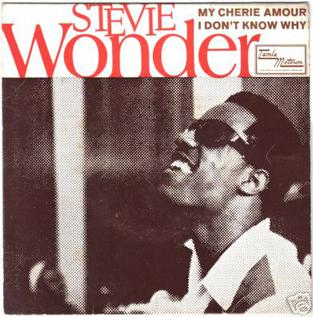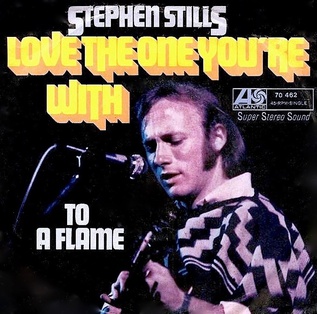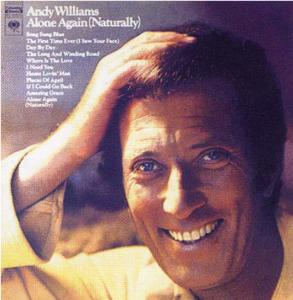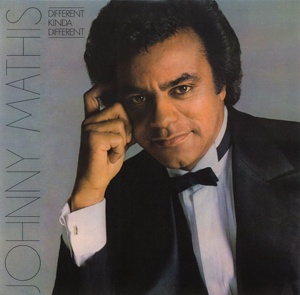
Antoine Dominique Domino Jr., known as Fats Domino, was an American pianist, singer and songwriter. One of the pioneers of rock and roll music, Domino sold more than 65 million records. Born in New Orleans to a French Creole family, Domino signed to Imperial Records in 1949. His first single "The Fat Man" is cited by some historians as the first rock and roll single and the first to sell more than 1 million copies. Domino continued to work with the song's co-writer Dave Bartholomew, contributing his distinctive rolling piano style to Lloyd Price's "Lawdy Miss Clawdy" (1952) and scoring a string of mainstream hits beginning with "Ain't That a Shame" (1955). Between 1955 and 1960, he had eleven Top 10 US pop hits. By 1955, five of his records had sold more than a million copies, being certified gold.

David Louis Bartholomew was an American musician, bandleader, composer, arranger, and record producer. He was prominent in the music of New Orleans throughout the second half of the 20th century. Originally a trumpeter, he was active in many musical genres, including rhythm and blues, big band, swing music, rock and roll, New Orleans jazz, and Dixieland. In his induction into the Rock and Roll Hall of Fame, he was cited as a key figure in the transition from jump blues and swing to R&B and as "one of the Crescent City's greatest musicians and a true pioneer in the rock and roll revolution".
"Blueberry Hill" is a popular American song published in 1940, best remembered for its 1950s rock and roll version by Fats Domino.
"You Always Hurt the One You Love" is a pop standard with lyrics by Allan Roberts and music by Doris Fisher. First recorded by the Mills Brothers, whose recording reached the top of the Billboard charts in 1944, it was also a hit for Sammy Kaye in 1945.
"Pledging My Love" is a blues ballad. It was written by Ferdinand Washington and Don Robey and published in 1954.

"I Bet You Look Good on the Dancefloor" is a song by English rock band Arctic Monkeys released on 17 October 2005, through Domino Recording Company. The song was the band's debut single and the first from their debut studio album, Whatever People Say I Am, That's What I'm Not (2006). Written by lead singer Alex Turner and produced by Jim Abbiss, "I Bet You Look Good on the Dancefloor" is a garage rock, indie rock, and post-punk track. It debuted at number one on the UK Singles Chart on 23 October 2005, and remains one of the band's best-known songs in the UK.

"My Cherie Amour" is a 1969 song by Motown singer-songwriter Stevie Wonder. The song reached number 4 on the Billboard pop chart in August to be Wonder's third Top Ten hit. The song was co-written by Wonder, Sylvia Moy, and Henry Cosby; Cosby also served as producer of the song. At the end of 1969, the song was ranked number 32 for the year.

"Love the One You're With" is a song by American folk rock musician Stephen Stills. It was released as the lead single from his debut self-titled studio album in November 1970. The song, inspired by a remark Stills heard from musician Billy Preston, became his biggest hit single, peaking at No. 14 on the Billboard Hot 100 in early 1971. David Crosby and Graham Nash, Stills' fellow members of Crosby, Stills & Nash, provide background vocals on the song. The song was also recorded by other pop musicians, notably the Isley Brothers, The Meters, Bucks Fizz, Luther Vandross, Bob Seger and Richard Clapton.

"Domino Dancing" is a song by English synth-pop duo Pet Shop Boys, released as the lead single from their third studio album, Introspective (1988). It reached number seven on the UK Singles Chart and topped the charts in Finland and Spain.

"One Night" is a song written by Dave Bartholomew, Pearl King, and Anita Steinman. It was an R&B hit for Smiley Lewis in 1956, before being recorded with greater commercial success by Elvis Presley in 1957.
"I Guess I'll Always Love You" is a 1966 single by The Isley Brothers, released on Motown's Tamla label, and is a Holland–Dozier–Holland composition. In the US, the single made both the Hot 100, and R&B singles chart.

"I Know (You Don't Love Me No More)" is an R&B song written and recorded by American singer Barbara George, released as her debut single in 1961. It became her signature song and her only major hit in United States, reaching number-one on the Billboard R&B singles chart and #3 in the Hot 100. The song was later covered by various artists, inducing Fats Domino, Cher, Ike & Tina Turner, and Bonnie Raitt. A Spanish version by Marisela topped Billboard's Latin chart in 1988. The Shirelles borrowed the melody of "I Know" for their 1963 cover of "Everybody Loves A Lover".
"I Want to Walk You Home" is a July 1959 pop-style R&B song written and recorded by Fats Domino. Released by Imperial Records as a single, it was the last of Domino's releases to reach number one on the R&B chart. "I Want to Walk You Home" stayed at the top spot for a single week and also peaked at number eight on the Billboard Hot 100.

"I'm Walkin'" is a 1957 song by Fats Domino, written with frequent collaborator Dave Bartholomew. The single was Domino's third release in a row to reach No. 1 on the R&B Best Sellers chart, where it stayed for six weeks. It also broadened the singer's crossover appeal, peaking at No. 4 on the pop singles chart. The prominent saxophone solo was played by Herbert Hardesty. Lee Allen was also on sax, Frank Fields on bass, Earl Palmer on drums, and Walter "Papoose" Nelson on guitar.
"Ain't That Just Like a Woman (They'll Do It Every Time)" is a 1946 song by Louis Jordan and His Tympany Five. The song reached number one on the R&B Jukebox chart for two weeks and peaked at number seventeen on the pop chart. Chuck Berry, who acknowledged the influence of both Louis Jordan and Carl Hogan, copied the latter's guitar intro to the song for his 1958 classic "Johnny B. Goode".

"This One" is a single from Paul McCartney's 1989 album, Flowers in the Dirt. The song reached number 18 on the UK singles chart. It also reached number 8 on the Ö3 Austria Top 40 in Austria, number 31 in the Dutch Top 40 in the Netherlands, number 40 on the Media Control Charts in Germany and number 14 in Japan.

Alone Again (Naturally) is the thirtieth studio album by American pop singer Andy Williams, released in September 1972 by Columbia Records and mainly consisting of songs originated by other artists. For its release in the UK, the album was titled The First Time Ever (I Saw Your Face), and three of the songs were replaced with the 7-inch single tracks "Who Was It?" and "Marmalade, Molasses & Honey" and a recording that was not released on vinyl in the U.S., "If You're Gonna Break Another Heart".

Song Sung Blue is an album by American pop singer Johnny Mathis that was released on September 13, 1972, by Columbia Records and featured his renditions of mostly recent chart hits.

Different Kinda Different is an album by American pop singer Johnny Mathis that was released on June 16, 1980, by Columbia Records and included covers of two standards and two recent hits. It also continued the trend of recording duets with a female singer; for this project Paulette McWilliams shared vocal duties on two of the six new songs.
"Valley of Tears" is a song written by Fats Domino and Dave Bartholomew and performed by Fats Domino. It reached No. 2 on the U.S. R&B chart, No. 8 on the U.S. pop chart, and No. 25 on the UK Singles Chart in 1957. It is included on his 1957 album This is Fats.











